“We have developed multidisciplinary research within the Department of Design & Engineering, Faculty of Science & Technology at BU in collaboration with major international, national and regional industrial and HEI partners”, Associate Professor Zulfiqar Khan said. He added, “multidisciplinary research within NanoCorr, Energy & Modelling (NCEM) theme is a direct response to industrial needs in terms of enhancing design for durability & reliability, meeting the demands for generating energy from renewable sources and enhancing students learning experience through research informed education. New knowledge, created during this process, is shared with stakeholders and academic communities through relevant platforms.
Multidisciplinary research within NCEM is led by Zulfiqar and includes the development of nano coatings (nano composites and graphene; materials science and engineering) to increase service life of machines and equipment deployed in harsh operational and environmental conditions (design & engineering), understanding corrosion (materials science and mechanical engineering) issues to prevent structural failures within machines, automotive, locomotives, large structures & marine applications (preventative and predictive condition monitoring; MEMS, NEMS, Micro LPRs) and developing cutting edge solar thermal techniques to generate mechanical and heat energies from renewable sources (mechanical engineering; heat transfer and nano additives).
The objectives of this research are to develop state of the art novel and innovative energy efficient design for durability and reliability solutions applied in wide ranging industrial applications, bring about socio-economic benefits including impacts on cultural life via public engagement. This research is fully and match funded through a current portfolio of one postdoctoral research assistant and four PhD students by major industrial and HEI partners plus three PhD projects were completed early this year.
Majority of you would have had a chance to read through the Stern’s review of REF which was released in late July, “steps taken to promote interdisciplinary and other joint working internally and externally and to support engagement and impact, beyond that which is just the aggregate of individual units of assessment (para.88)”. “The proposal to allow the (tick-box) identification interdisciplinary outputs, as well as document the role of ‘interdisciplinary champions’ (para. 100)”
Zulfiqar said, “our vision of developing and engaging in multidisciplinary research which is industrially relevant, academically robust and has significant socio-economic value will play an important role in the REF 2021 and beyond and we are better positioned to lead in this area”. He has previously led the University Sustainable Design Research Centre between 2007-2015 and the centre received its REF14 Panel Feedback as, “Sustainable Design Research Group had the highest proportion of outputs judged to be internationally excellent”.
Fusion of research, education and professional practice is a key to lead to multidisciplinary research. BU Fusion of research, education and professional practice is at the heart of BU 2018 strategy. Zulfiqar said, “we have been and are currently delivering research informed education through the delivery of several UG/PG taught courses. This is a major contributor in enhancing students’ learning experience and enabling them to be more employable both in the country and globally.
He previously led the final year Design Engineering, Advanced Technology & Innovation 40 credit unit. Students participated in research activities which led them to publish journal and international conference papers including an invited Springer book chapter.
He developed a 20 credit Thermo fluids & Heat Transfer unit, taught in the second year of BEng/MEng course. Education in this unit is research informed and the unit is supported by laboratory experimentations. This provides an opportunity for the students to bridge the gap between theory and practice. He has also developed two new units Fluids and Thermodynamics L5/Year 2 MEng (Hons) Mech Engg and Thermofluids and Energy Conversion L6/Year 4 MEng (Hons) Mech Engg for recent IMechE accreditation. Education in these units will be supported by state of the art experimental techniques with in kind support from industrial partner and informed by current research in renewable energy technology within NCEM.
Zulfiqar is also leading first year Design Methods & Projects a 40 credit unit in the Design Engineering course. This unit has several projects that allow students to solve real world industrial problems and engage in research within corrosion, contact mechanics and materials science through a live project with The Tank Museum Bovington.
Both Fusion and multidisciplinary research are benefiting students in terms of their learning experience, solving immediate and challenging industrial problems, improving standard of life and bringing economic impacts including impacts on cultural life.
Some latest research activities are documented in recent publications, for further information you may contact Zulfiqar Khan.
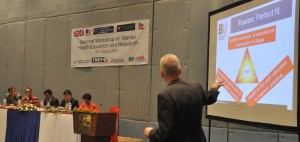 We have written in many previous BU blogs about progress of our THET-funded project in southern Nepal (e.g. here AND here ). Today’s blog reflects on the use on BU’s unique FUSION approach in our project ‘Mental Health Training for Maternity Care Providers in Nepal‘.
We have written in many previous BU blogs about progress of our THET-funded project in southern Nepal (e.g. here AND here ). Today’s blog reflects on the use on BU’s unique FUSION approach in our project ‘Mental Health Training for Maternity Care Providers in Nepal‘.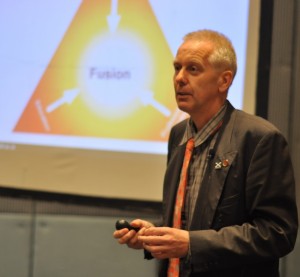 Our BU-led project brings highly experienced health professionals, such as midwives, health visitors or mental health nurses, to Nepal to work as volunteer trainers. The training is aimed at community-based maternity care practitioners and addresses key mental health issues relevant to pregnancy and for new mothers and offers the required communication skills. These health professionals will bring their experience as health care providers as well as trainers in the field of mental health and maternity care/midwifery, mental ill-health prevention and health promotion. They volunteer for two to three weeks at a time to design and deliver training in southern Nepal.
Our BU-led project brings highly experienced health professionals, such as midwives, health visitors or mental health nurses, to Nepal to work as volunteer trainers. The training is aimed at community-based maternity care practitioners and addresses key mental health issues relevant to pregnancy and for new mothers and offers the required communication skills. These health professionals will bring their experience as health care providers as well as trainers in the field of mental health and maternity care/midwifery, mental ill-health prevention and health promotion. They volunteer for two to three weeks at a time to design and deliver training in southern Nepal. The Centre for Midwifery & Maternal Health (CMMPH) collaborates in this project with Liverpool John Moores University (LJMU), the Department of Health, and Physical & Population Education at Nepal’s oldest university Tribhuvan University’s (TU). The project is supported in the field by a local charity called Green Tara Nepal. Our project is part of the Health Partnership such as Nepal. HPS itself is funded by the UK Department for International Development and managed by THET (Tropical and Health Education Trust).
The Centre for Midwifery & Maternal Health (CMMPH) collaborates in this project with Liverpool John Moores University (LJMU), the Department of Health, and Physical & Population Education at Nepal’s oldest university Tribhuvan University’s (TU). The project is supported in the field by a local charity called Green Tara Nepal. Our project is part of the Health Partnership such as Nepal. HPS itself is funded by the UK Department for International Development and managed by THET (Tropical and Health Education Trust). Our maternal mental health project is a good example of BU’s FUSION approach as it combines EDUCATION (through the training of Auxiliary Nurse-Midwives in Nepal) by UK volunteers (representing PRACTICE) through an intervention which is properly evaluated (representing RESEARCH) is a perfect example of BU’s FUSION in action. Moreover, the project will be partly evaluated by FHSS’s Preeti Mahato as part of her PhD thesis research. This PhD project is supervised by Dr. Catherine Angell (CEL & CMMPH), BU Visiting Professor Padam Simkhada (based at LJMU) and CMMPH’s Prof. Edwin van Teijlingen.BU’s focus on the FUSION of research, education and professional practice is a unique variant of the way UK universities (and many abroad) blend academic teaching, research and scholarship. FUSION is a key concept derived from BU’s strategic Vision & Values).
Our maternal mental health project is a good example of BU’s FUSION approach as it combines EDUCATION (through the training of Auxiliary Nurse-Midwives in Nepal) by UK volunteers (representing PRACTICE) through an intervention which is properly evaluated (representing RESEARCH) is a perfect example of BU’s FUSION in action. Moreover, the project will be partly evaluated by FHSS’s Preeti Mahato as part of her PhD thesis research. This PhD project is supervised by Dr. Catherine Angell (CEL & CMMPH), BU Visiting Professor Padam Simkhada (based at LJMU) and CMMPH’s Prof. Edwin van Teijlingen.BU’s focus on the FUSION of research, education and professional practice is a unique variant of the way UK universities (and many abroad) blend academic teaching, research and scholarship. FUSION is a key concept derived from BU’s strategic Vision & Values). Congratulations to Dr. Pramod Regmi as the lead author of the paper ‘
Congratulations to Dr. Pramod Regmi as the lead author of the paper ‘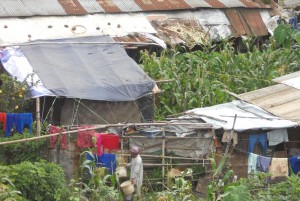
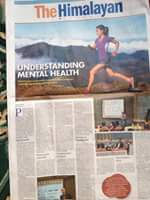
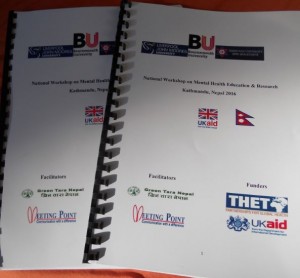
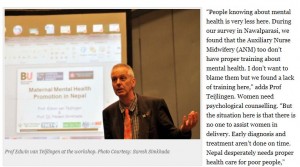
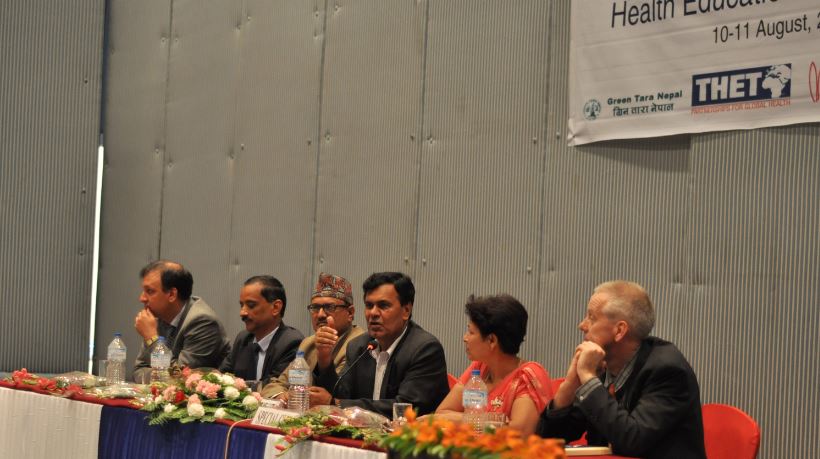
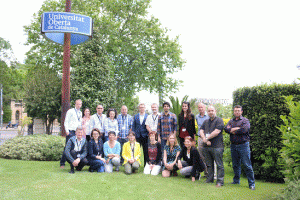
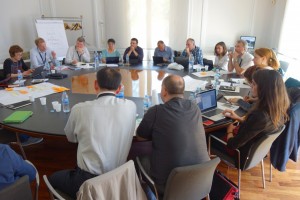

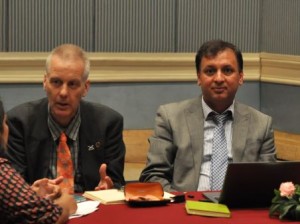
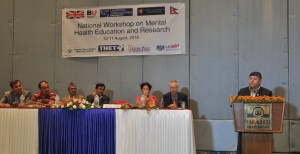
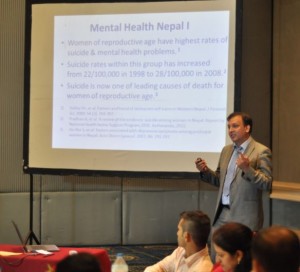
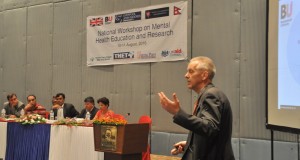
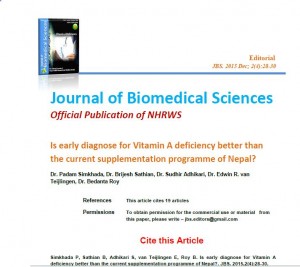

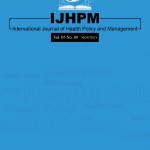 The Harding and Pritchard paper titled ‘UK and Twenty Comparable Countries GDP-Expenditure on Health 1980-2013: The Historic and Continued Low Priority of UK Health-Related Expenditure’, and published in the
The Harding and Pritchard paper titled ‘UK and Twenty Comparable Countries GDP-Expenditure on Health 1980-2013: The Historic and Continued Low Priority of UK Health-Related Expenditure’, and published in the 
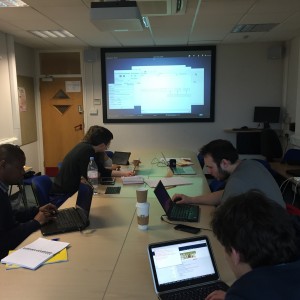
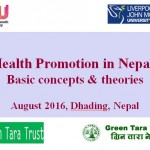
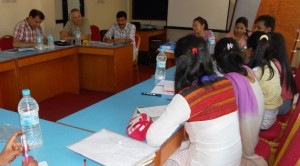
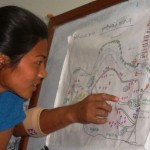
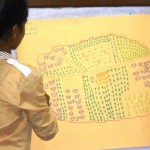
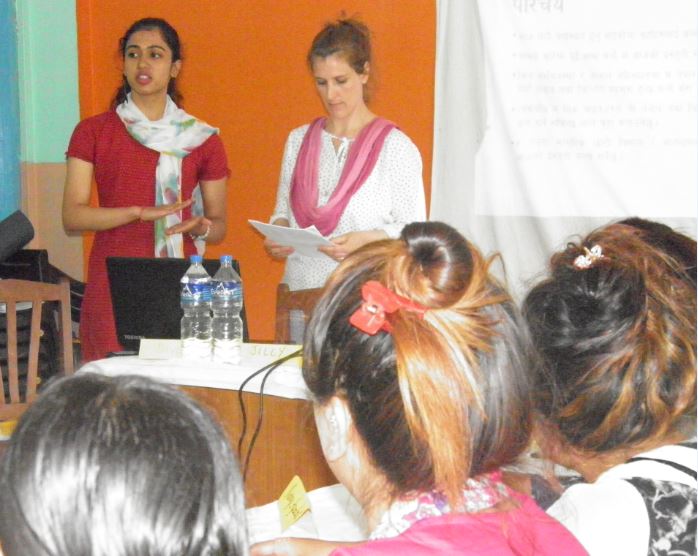
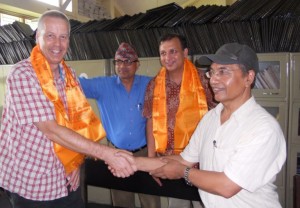












 Beyond Academia: Exploring Career Options for Early Career Researchers – Online Workshop
Beyond Academia: Exploring Career Options for Early Career Researchers – Online Workshop UKCGE Recognised Research Supervision Programme: Deadline Approaching
UKCGE Recognised Research Supervision Programme: Deadline Approaching SPROUT: From Sustainable Research to Sustainable Research Lives
SPROUT: From Sustainable Research to Sustainable Research Lives BRIAN upgrade and new look
BRIAN upgrade and new look Seeing the fruits of your labour in Bangladesh
Seeing the fruits of your labour in Bangladesh ECR Funding Open Call: Research Culture & Community Grant – Apply now
ECR Funding Open Call: Research Culture & Community Grant – Apply now ECR Funding Open Call: Research Culture & Community Grant – Application Deadline Friday 12 December
ECR Funding Open Call: Research Culture & Community Grant – Application Deadline Friday 12 December MSCA Postdoctoral Fellowships 2025 Call
MSCA Postdoctoral Fellowships 2025 Call ERC Advanced Grant 2025 Webinar
ERC Advanced Grant 2025 Webinar Update on UKRO services
Update on UKRO services European research project exploring use of ‘virtual twins’ to better manage metabolic associated fatty liver disease
European research project exploring use of ‘virtual twins’ to better manage metabolic associated fatty liver disease